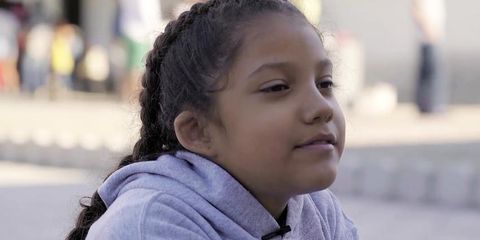3 APRIL 2017
Plan International is asking for action to protect the 300,000 boys and girls who have been affected by flooding in Piura, Peru. Our emergency teams are currently providing food, water and hygiene kits to those affected.
Plan International is asking for action to protect the 300,000 boys and girls who have been affected by floods in Piura, Peru. We are currently supporting those affected by providing water, food for children under 3, family water kits and hygiene kits for adolescent girls.
Plan International is focusing on 4 areas during the emergency: protection and emotional support, education, water and sanitation, and housing. Girls in the affected areas will have specific consultations about their needs during and after the emergency.
Ramin Shahzamani, Plan International’s Country Director in Peru, said that “Disasters and crisis situations bring particular dangers to girls; they are most at risk of falling behind in their education, and to be the objects of exploitation, abuse, and violence.”
We’ve worked in Piura for 22 years
We are aiming to reach 12,000 affected children and adolescents in Piura. “We have been working in Piura for 22 years, and the community trusts us. That is why we know the distribution will be done in an efficient and orderly manner,” Shahzamani explained.
The flooding has affected more than 1 million people, according to official data from the National Institute for Civil Defence (INDECI). 11 Departments are in Sanitary Emergency for 90 days, and some 1.9 million children have not been able to go to school because of the emergency.
Girls often suffer most during emergencies
Plan International Peru reminds us that potential abuse and violence against girls in crisis situations can have physical and psychological consequences that impede them from reaching their full potential. “It is important to emphasise their protection and wellbeing through humanitarian aid.”
If the humanitarian answer does not include the necessities of girls and adolescents, medium and long term consequences can be devastating. “When families lose their means of sustaining themselves, they decide to take girls out of school so they can help with domestic work, for example”, Shahzamani said. “The right to education is fundamental, and all girls and boys should be able to exercise it in equal conditions.”

